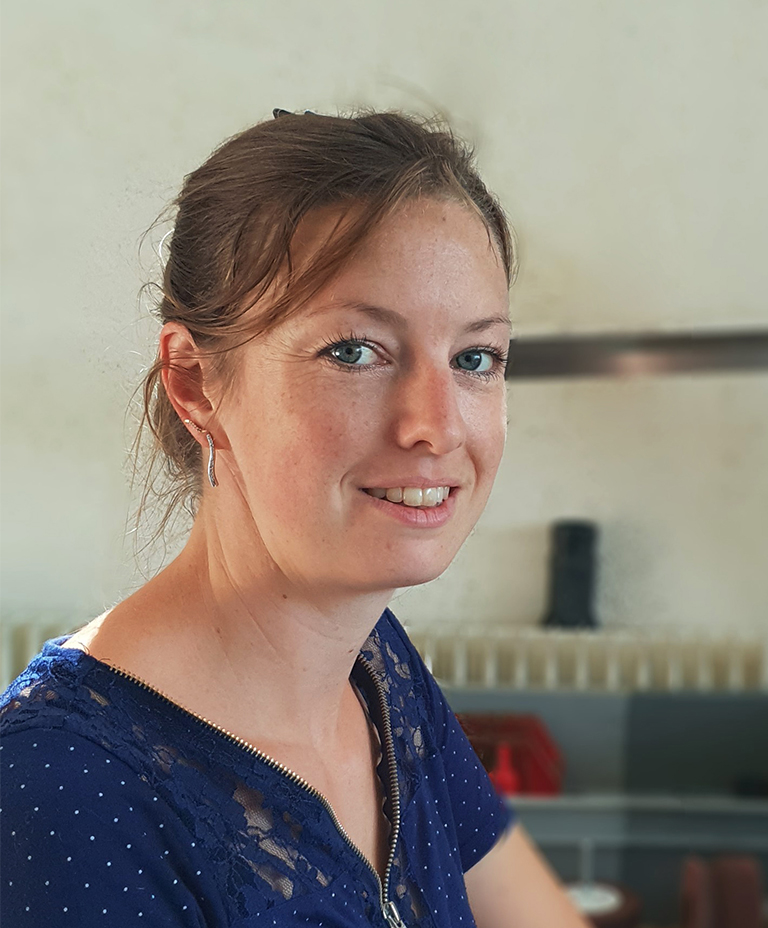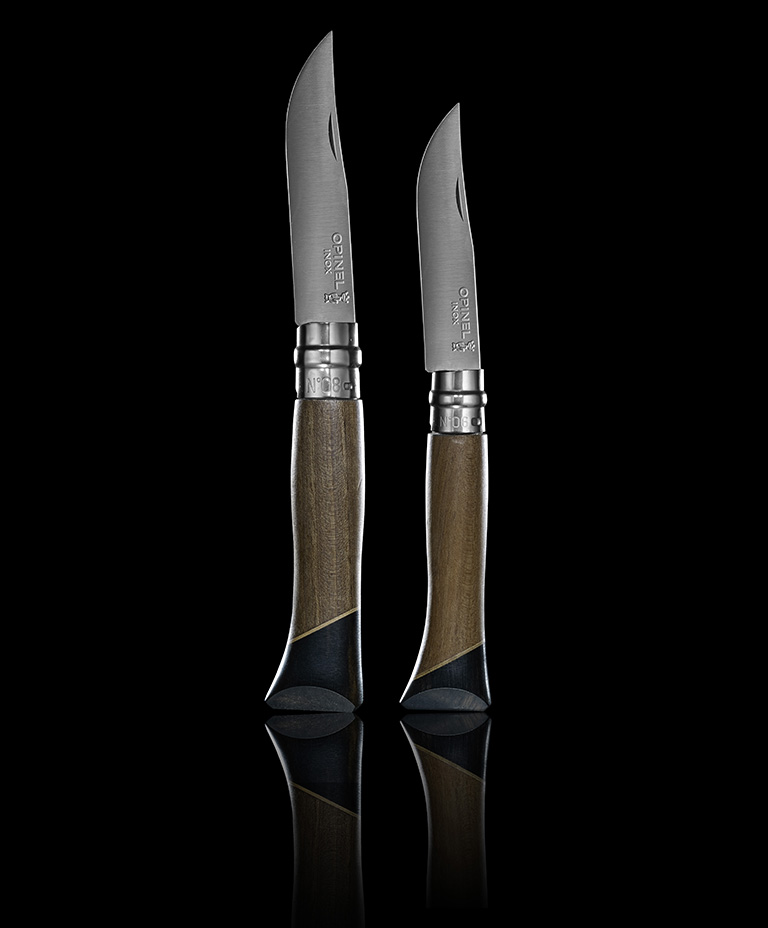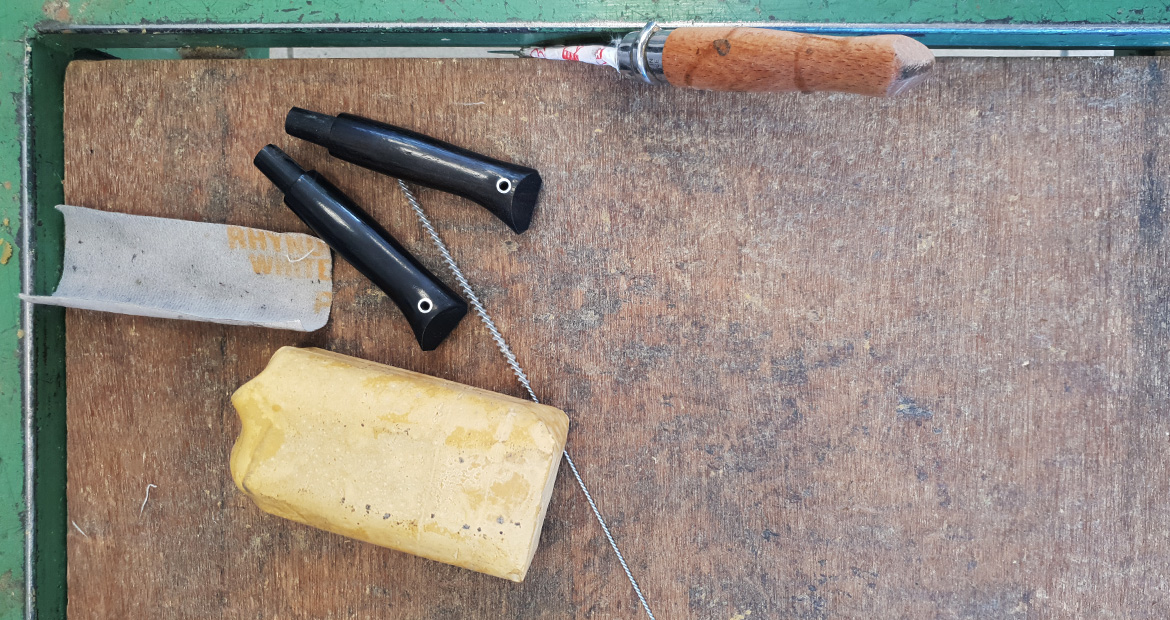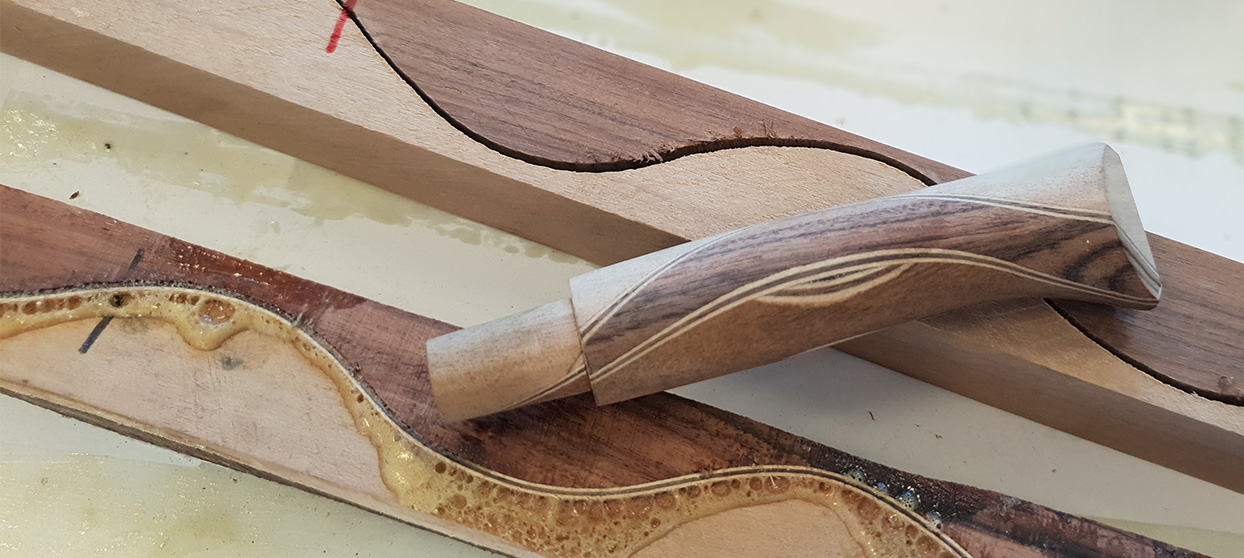Your cart
Your cart is empty

Nom : Ducrocq
Prénom : Emeline
Ville : Chambéry
Pays : France
Profession : Team leader in the wood craft industry
My name is Emeline Ducrocq, and I'm a team leader in wood crafts. After training in tiling, I joined the Opinel team through my sister, who was already working for the company, and who had told me a lot about the job. Because I worked with my hands, being a tiler, I was able to instantly fit in and adapt to the woodworking workshop.
The first step is to select the exotic woods to be cut, using a bandsaw in a wave form or at 30° or 40° angles, depending on which handle we are making for which specific knife. Then, using an impact spanner, the joints are glued together under pressure using traditional methods. After waiting 6 hours for the glue to set, the wood forms that will become the handles are finished with a band saw to remove the excess glue and clean the wood, so that they can be shaped later. The final stage in making the handle is buffing, i.e. applying a wax by hand to the handle to give it a shiny, smooth appearance instead of a more traditional varnish.
My favourite part of the process is cutting the wood. I really love using the band saw, because you don't use a guide: you do everything freehand and work by instinct, which means that every handle you create in this workshop is unique.
It's the only workshop where everything is done by hand, apart from the finishing. Some of our tools are even handmade. Another special feature of our workshop is that, despite the fact that many people consider this to be a male profession, our team is currently entirely female.

The handle is made of walnut and ebony, with two veneers incorporated between these two woods. You make a 30° cut near the heel, then the walnut and ebony are assembled, glued and pressed. Once worked and shaped, the handle is finally buffed, like all the other handles made in this workshop.
I created this handle because I wanted to stop wasting any damaged ebony, which we were obliged to throw away. As a result, this wood is now recovered from discarded wood handle blocks. What's more, I thought the combination of walnut, which is a soft wood, and ebony, a very dense kind of wood, was really attractive and gave the handle a lovely finish.
I was totally free to create this handle. I started from scratch, with no rules dictating which wood or cut I should choose.

We start by choosing the kind of wood we want to work with, then we work out how we are going to cut it in our workshop. We do a lot of tests until we find a handle that we like, which is then validated by the marketing department. Finally, we fine-tune and adjust our handle to get the best possible result.
Fascinating. What I really like about Opinel woodworking is the great freedom we are given to create. And more than anything, I love being able to work with precious woods by hand, which makes it a wonderful workshop to be part of.

Photo credits: Opinel, Sémaphore
Are you sure you want to perform this action?